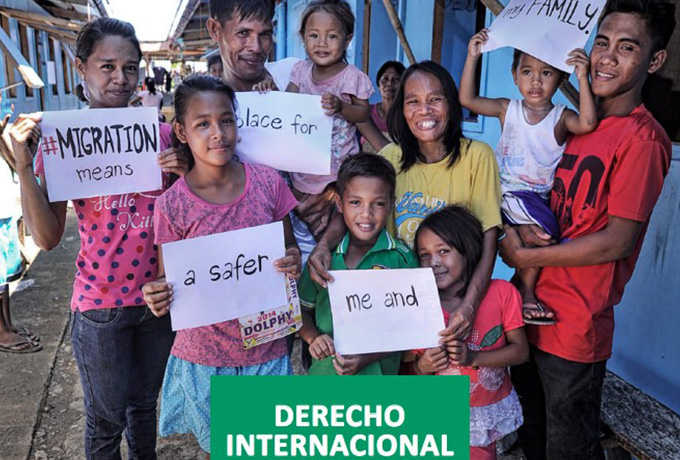Assisted voluntary return and reintegration:
Administrative, logistical or financial support, including reintegration assistance, to migrants unable or unwilling to remain in the host country or country of transit and who decide to return to their country of origin.
Asylum seeker:
An individual who is seeking international protection. In countries with individualized procedures, an asylum seeker is someone whose claim has not yet been finally decided on by the country in which he or she has submitted it. Not every asylum seeker will ultimately be recognized as a refugee, but every recognized refugee is initially an asylum seeker.
Country of transit:
In the migration context, the country through which a person or a group of persons pass on any journey to the country of destination or from the country of destination to the country of origin or the country of habitual residence.
Country of origin:
In the migration context, a country of nationality or of former habitual residence of a person or group of persons who have migrated abroad, irrespective of whether they migrate regularly or irregularly.
Country of destination:
In the migration context, a country that is the destination for a person or a group of persons, irrespective of whether they migrate regularly or irregularly.
Coordination (public policies):
Capacity of two or more institutions to perform tasks in a joint and coordinated manner to achieve the same goal.
Consistency (public policies):
Degree of logical matching among the different levels of a public policy’s intervention, from the justification of the policy through to the different intervention units that implement these principles and bases.
Displacement:
The movement of persons who have been forced or obliged to flee or to leave their homes or places of habitual residence, in particular as a result of or in order to avoid the effects of armed conflict, situations of generalized violence, violations of human rights or natural or human-made disasters.
Emigration:
From the perspective of the country of departure, the act of moving from one’s country of nationality or usual residence to another country, so that the country of destination effectively becomes his or her new country of usual residence.
Mixed migration flows:
A movement in which several people are travelling together, generally in an irregular manner, using the same routes and means of transport, but for different reasons. People travelling as part of mixed movements have varying needs and profiles and may include asylum seekers, refugees, trafficked persons, unaccompanied/separated children, and migrants in an irregular situation.



